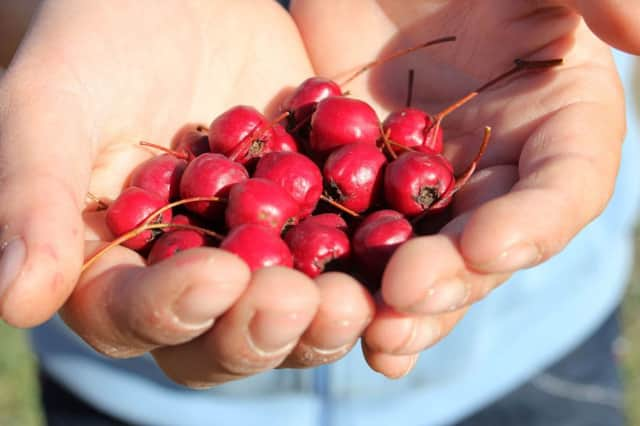Seven ways cranberries can improve your health


With their deep red hue and vibrant sheen, cranberries certainly look the festive part - and taste particularly delicious in sauce form slathered on turkey - but there’s no reason why these juicy fruits should be forgotten about the rest of the year.
In fact, they are bursting with potential health benefits, not to mention being super-versatile too (ever tried baking dried ones into scones?). Here, experts outline seven reasons to cram in more cranberries.
Bladder health
Advertisement
Hide AdAdvertisement
Hide Ad“Cranberries have been used for centuries by Native Americans to treat urinary tract infections, and there’s lots of research being done now to explain why these tart little berries are so bladder friendly,” says nutritionist Marilyn Glenville (www.marilynglenville.com).
“The first study to scientifically confirm this health benefit was undertaken in 1994, where women given 300ml of cranberry juice a day were found to suffer less than half the incidence of urinary tract infections as the placebo-ingesting control group.
“It was originally believed that cranberry juice reduced the symptoms of cystitis by making the urine more acidic - obviously not a desirable effect, as it is the acidic urine that causes the burning sensation.
“We now know that cranberries work in a completely different way. It seems that certain substances in cranberries can stop bacteria, such as E. coli, from sticking to the walls of the urinary tract. For bacteria to infect your urinary tract, they must first stick to the mucosal [mucous membrane lining] walls of the tract. If they are unable to do so, they cannot multiply and are flushed from the body when you urinate.”
However, Glenville warns: “Using cranberry juice which is sweetened with sugar is not going to be helpful, so you should either use an unsweetened cranberry juice - with no artificial sweeteners either - or take it in a concentrated dried form as a supplement.”
Immune health
They could help us keep coughs and colds at bay too, according to Nature’s Best nutritionist Keri Filtness (www.naturesbest.co.uk), as they contain nutrients that support immune function. “Cranberries are an excellent source of vitamin C, which can contribute to the normal function of the immune system,” says Filtness.
Dental health
The same properties that stop bacteria from sticking to the wall of the urinary tract - thought to be antioxidant proanthocyanidins - have been shown to “inhibit the HSV-2 herpes virus, and the Helicobacter pylori bacteria that are increasingly recognised as a leading cause of peptic ulcers and the growth of oral bacteria, which cause dental plaque and periodontal disease”, says Glenville.
Heart health
According to Glenville, “studies have also found that cranberries, which contain high levels of other antioxidant flavonoids and polyphenols, can reduce the risk of atherosclerosis, which is caused by ‘bad’ LDL cholesterol silting up arteries, reducing blood flow and leading to angina, thrombosis and heart attacks”.
Allergy busting
Advertisement
Hide AdAdvertisement
Hide AdFiltness says: “These berries also contain a compound called quercetin, which is thought to reduce inflammation and may help with allergies.”
Memory and mental health
“Research to come out of the Human Nutrition Research Centre on Aging at Tufts University in the US, suggests that diets rich in foods with high levels of antioxidants and other phytonutrients, such as cranberries, could protect against chronic age-related afflictions, such as loss of memory and mental acuity,” notes Glenville.
Skin health
“The antioxidant proanthocyanidins, which give cranberries their distinctive, bright red colour, are thought to support the production, and reduce the breakdown, of collagen, which may have an effect on skin elasticity and strength,” says Filtness.